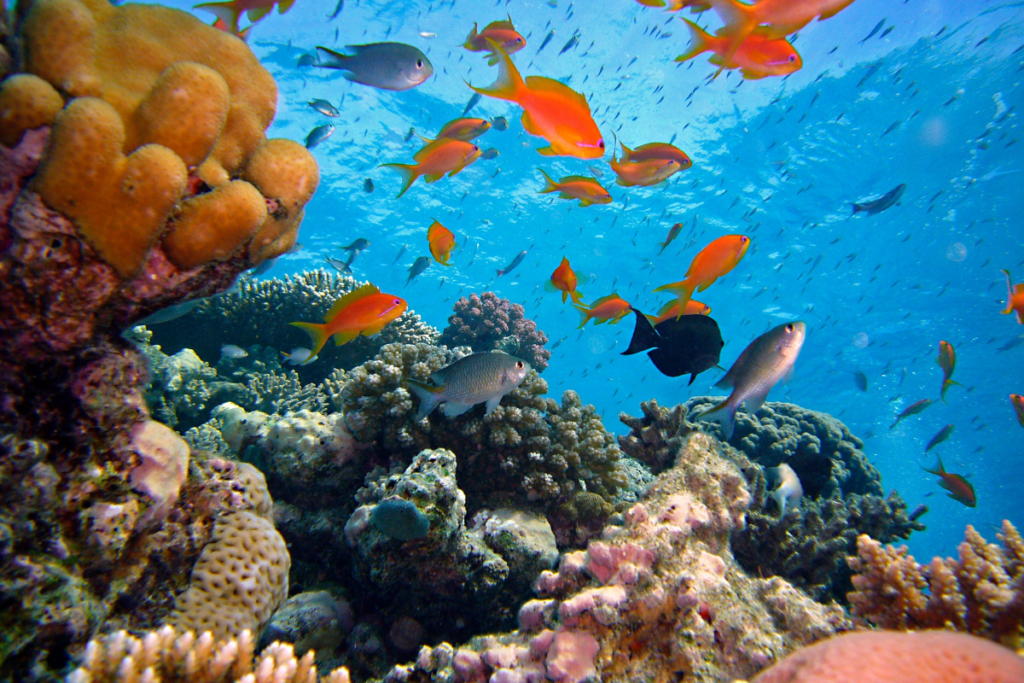Coral reefs are very complex ecosystems that, with their beautiful and unique structures, provide valuable habitats for fish and other animals. These structures are a refuge for many organisms such as fish, marine worms, clams, and many other animals and plants that play important roles in the coral reef ecosystem.
Coral reefs are important for many reasons including biodiversity, coastal protection, nutrition, medicine, and tourism, which we discuss below.
Importance of Coral Reefs
Biodiversity
Coral reefs are often thought of as a busy city; The buildings are made of coral and the thousands of organisms that inhabit this city behave like humans, interacting with each other and going about their daily chores.
Coral reefs provide protection and shelter for almost a quarter of all known marine species and have become one of the largest and most complex ecosystems known to man.
Over 4,000 species of fish, 700 species of coral, and thousands of other plants and animals live in coral reefs. This biodiversity provides a large gene pool that gives communities greater resilience to environmental extremes and climate change. This is important for the general health of an ecological community.
Coastal Protection
Coral reefs form a natural barrier that protects coastal beaches, cities, and towns from ocean waves and storms. Almost 200 million people depend on coral reefs for protection from storm surges and waves. If there were no coral reefs, many buildings would be severely damaged by the storms.
Food
Coral reefs are of major importance as a food source for people living near reefs and are vital to global fisheries, providing them with an important source of protein. In developing countries, reefs are said to contribute a quarter of all fish caught, which provides food resources for tens of millions of people.
Medicine
Many of the compounds now used in human medicines are found in the coral reef, with the potential to discover more. Various organisms found in reefs produce chemical compounds that have been isolated for human applications. Scientists have developed treatments for a variety of diseases, including cardiovascular disease, skin cancer, ulcers, and leukemia.
Other compounds may help reduce inflammation, kill viruses, and relax muscles. Not only do the organisms that inhabit the coral reef deliver medical treatments but the individual skeletal structure of the coral was used for the bone material.
Tourism
Coral reefs are some of the most diverse and economically precious ecosystems on Earth. Through tourism (i.e.snorkeling, scuba diving, swimming) and fisheries, coral reefs generate billions of dollars, in addition to jobs than one hundred nations across the world. The annual profit is expected to be over $375 billion.
For citizens of coral reef regions who rely on profits from tourism, reef destruction creates a sizable lack of employment withinside the tourism, marine recreation, and game fishing industries. This huge sum of money of sales generated is being threatened through the degradation of coral reefs.
As you could see there are advantages as well downsides of tourism, however sustainable practices in ecotourism can help to balance things out and the both worlds can end up gaining.

Erzsebet Frey (Eli Frey) is an ecologist and online entrepreneur with a Master of Science in Ecology from the University of Belgrade. Originally from Serbia, she has lived in Sri Lanka since 2017. Eli has worked internationally in countries like Oman, Brazil, Germany, and Sri Lanka. In 2018, she expanded into SEO and blogging, completing courses from UC Davis and Edinburgh. Eli has founded multiple websites focused on biology, ecology, environmental science, sustainable and simple living, and outdoor activities. She enjoys creating nature and simple living videos on YouTube and participates in speleology, diving, and hiking.

